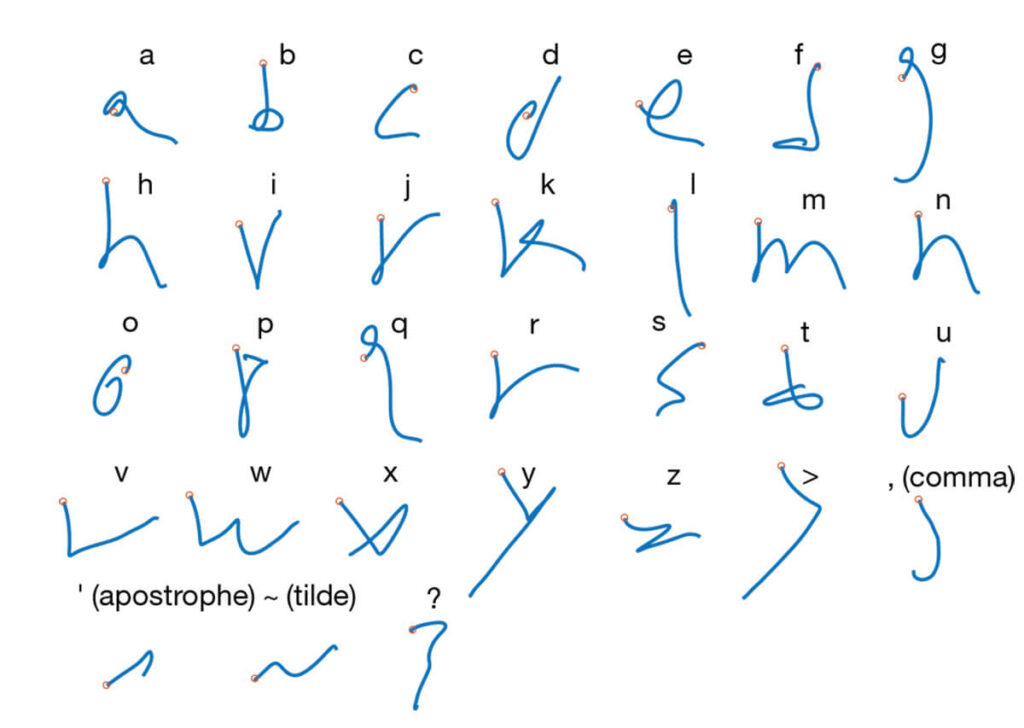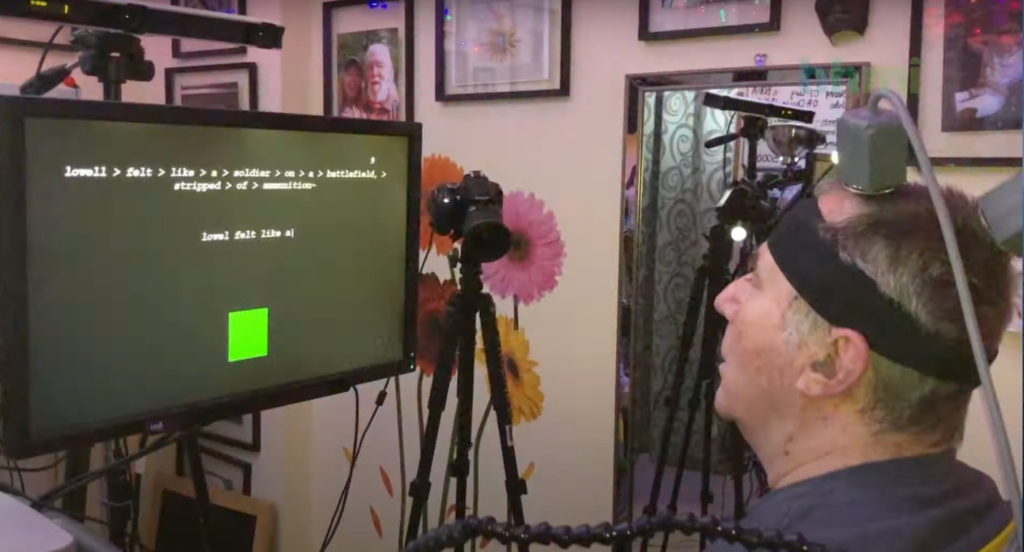Technological developments haven’t failed to give hands to the infirmity of the world, decoding its illness to strength, no matter what the field is. Likely, a man who was paralyzed from the neck down in an accident back in 2007, was able to convert his thoughts into letters, as an accomplishment of brain-computer interface. Thanks to AI.
Brain-Computer interface
A paralyzed man T5 who is in his 60s, has written sentences using a computer system that turns your mind-words into computer-screened words.
After a spinal cord injury in 2007 which got his lower-body immobilized, was inserted two brain-computer interface chips, each the size of a baby aspirin, on the left side of his brain where the motor cortex resides. The chip with 100 electrodes picks-up signals from neurons of the motor-cortex region and sends it to a wired-computer, where artificial intelligence algorithms decode the signals and surmise T5’s intended hand and finger motion.
Scientists have always on the front to help the paralyzed people to communicate; and the outcomes were numerous devices/software packages, ranging from speech recognition to muscle-driven cursor system. For instance, Cambridge Cosmologist Stephen Hawking was the user of the latter, where he simply tensed his cheek to move the cursor to preferable alphabets, that he wanted to choose to build up words.

Researchers, hence, have developed a way for people with paralysis who have lost their mobilization below their neck, to communicate with others by turning mental handwriting on a human mind into on-screen words.
This is way afar from Elon Musk’s Neuralink, as neuralink is takes a much larger leap, aiming to control everything with your brain’s thoughts.
The team from Stanford University coupled AI with brain-computer interface (BCI), to conform the purpose. The software could decode the mental-handwriting as twice quickly as the same interface which was developed earlier in 2017. As much as 18 words have been written by T5 with almost 94.1% accuracy, that isn’t far from 23 words, mind-written by a normal man for the experiment. The letters were fed to train an artificial intelligence algorithm to assist in building preferable words.

Willett and his colleagues asked T5 to imagine he was holding a pen above a pad of paper and then to try to write individual letters of the alphabet, even though he could not move his arm or hand. As he tried, they recorded activity from the brain region that would have controlled his movements.
“This approach allowed a person with paralysis to compose sentences at speeds nearly comparable to those of able-bodied adults of the same age typing on a smartphone,” said Prof Jaimie Henderson of Stanford University. “The goal is to restore the ability to communicate by text.”
Watch how it’s done, here!
The mind-written text works good for roman alphabets but blankets how well the algorithms work for languages having no relevance to alphabets like Tamil. 247 letters in Tamil maybe confusing the algorithm, says the researchers.
The brain-reading feat has been touched and time will assure that this too could be settled.
Read this: This Gaming Headset scans your Brainwaves and notifies your weaknesses
“While this gives us many reasons to be optimistic about the future of BCIs, challenges remain to develop systems that we can use for daily life. For instance, they demonstrated their algorithms in one person for a brief time. How we extend this work to assure the algorithms work well every day and for everyone is an exciting new challenge.”
(Give an eye for related posts!)
- Evolution of AI: 5 Stages of AI And How It Helps / threatens Us
- Why “Unsubscribe” in Emails Could Be a Trap? Instead Do this
- Apple iOS 26: 10 Best Features, Compatible Devices & more
- What is Prompt Engineering? Why learning it matters?
- What is Physical AI and How It’s Reshaping Our World?
References:https://cosmosmagazine.com/technology/ai/paralysed-man-handwrites-with-brain-chip/https://www.theguardian.com/science/2021/may/12/paralysed-man-mindwriting-brain-computer-compose-sentences






